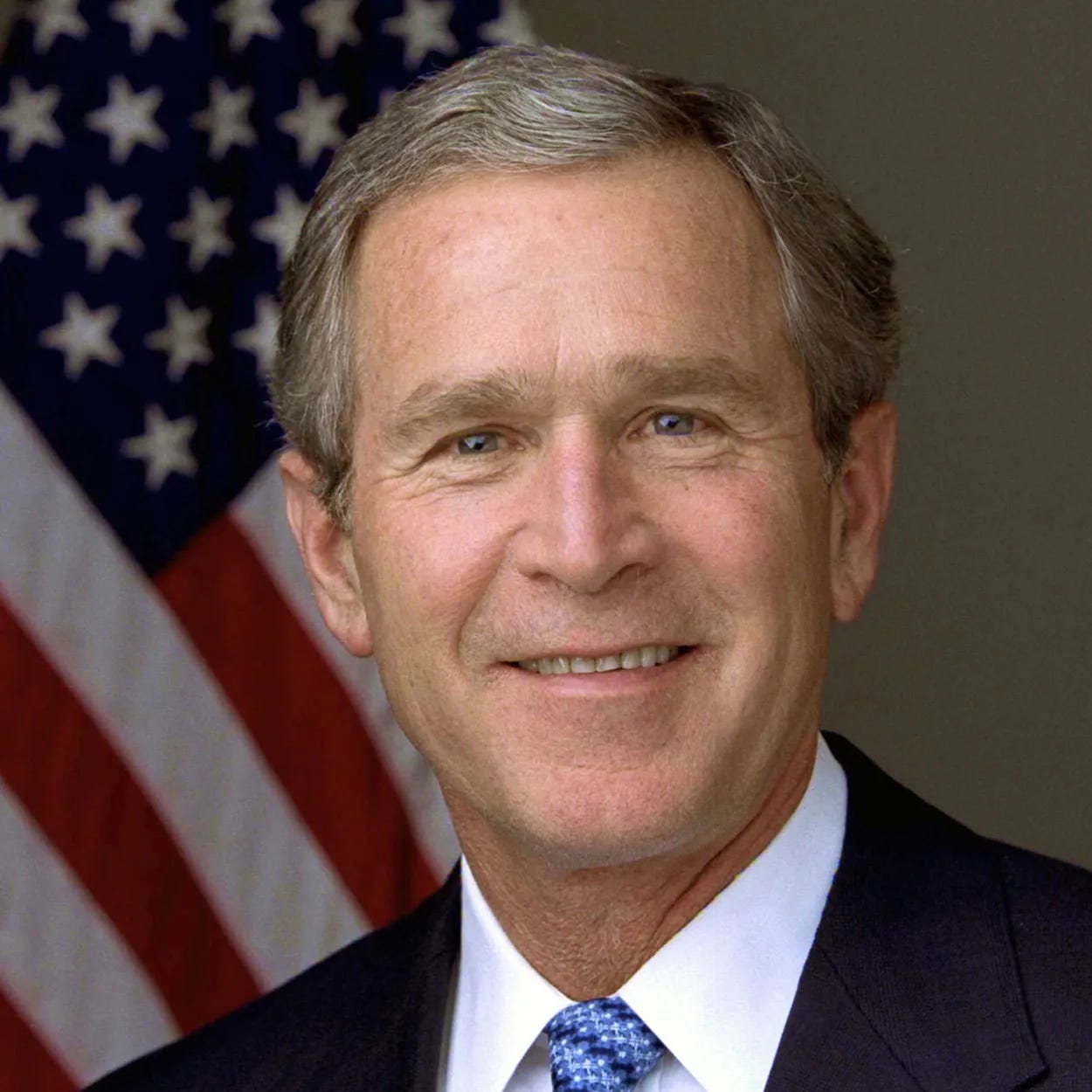“To lose one parent, Mr. Worthing, may be regarded as a misfortune; to lose both looks like carelessness.” The line from Oscar Wilde’s The Importance of Being Earnest might apply to the wars of George W. Bush. Except that critics thought carelessness too kind a description of Bush’s second war.
In the aftermath of the terrorist attacks of September 11, 2001, American military action in Afghanistan was unavoidable. The al-Qaeda hijackers had been trained in Afghanistan, and their leader, Osama bin Laden, was thought to still be there. When the Taliban regime ruling the country objected to the American invasion, as any Afghan regime would have, its removal and replacement was similarly foreordained. And having installed a new government in Kabul, the United States couldn't honorably abandon it. Thus began and proceeded America’s Afghanistan war, step by almost automatic step.
America’s Iraq war was another matter. No terrorists trained in Iraq had attacked American soil. No terrorist leader was on the loose in Iraq. The leader of Iraq, Saddam Hussein, had not declared jihad—holy war—against America, as Osama bin Laden had.
Yet individuals in the administration of George W. Bush were determined to have a war against Iraq. Some resented the fact that Saddam had survived the 1991 Gulf war, which liberated Kuwait from Iraq but left Saddam standing in Baghdad. According to this view, Saddam was a bad guy who would continue to roil the Middle East until removed from power. Bush himself may have been moved by reports that Saddam had tried to arrange the assassination of Bush's father, the first President Bush.
But the argument to which the administration devoted most of its energy was that Saddam was about to acquire weapons of mass destruction, if he hadn’t acquired them already. WMDs include nuclear, biological and chemical weapons, which can kill people en masse. What if the 9/11 terrorists had had access to nukes?, administration officials asked.The American dead would have numbered in the millions rather than the thousands.
Bush weighed the arguments. How firm was the evidence regarding WMDs? What were the intentions of Saddam? Did he have links to terrorists?
Bush didn't know the answers. Decisions by presidents, like decisions by many people, are often made in the absence of complete information. Yet presidential decisions have much greater consequence than decisions you and I make.
Still, he had to decide. He considered the possible outcomes. If he ordered the invasion of Iraq and discovered that Saddam really was about to unleash nuclear terror against the United States, the invasion would justify itself. If he did not invade and Saddam did unleash terror, Bush would rightly be condemned for failing to defend America. If he did invade and Saddam lacked WMDs, Bush would be judged a fool and an aggressor. If he did not invade and Saddam did not have WMDs, nothing would happen. Except that Saddam might eventually get WMDs.
Bush ordered the invasion. And Saddam turned out not to have WMDs. Bush looked like a fool and was rightly judged an aggressor, having invaded a country against which the United States was not at war and which wasn’t about to attack the United States.
Bush and his team pivoted to a new justification for the invasion. Saddam was a dictator, and his overthrow would allow the emergence of democracy in Iraq. This didn't make the invasion any more legal, but it provided moral cover.
The cover wore thin when democracy failed to take hold in Iraq. And the rationale gave little comfort to the many thousands, overwhelmingly Iraqis, who died in the fighting triggered by the American invasion.
Within a short space of time there was almost nothing good to be said about America's Iraq war. Saddam was toppled and executed, but the regime that replaced him was unable to impose order on Iraq. A sectarian war broke out, leading to increased power for groups favoring Iran. This was especially unsettling, because for all the annoyances Saddam had caused, Iran had long been viewed as the greater threat to American interests in the Middle East.
Some critics accused Bush of lying about the evidence of WMDs to justify an anti-Saddam war. More likely he failed to cross-examine the evidence with sufficient rigor and thus let himself be persuaded too easily.
Whether cynical or naive, Bush’s decision was a bad one, by the basic standard of producing costs that outweighed benefits. Americans, Iraqis and others have been dealing with the negative balance ever since.


In fairness, a lot of Democrats believed Saddam had WMDs too, based on the same faulty intelligence that Bush relied on:
https://youtu.be/Cwqh4wQPoQk?si=EJHrBtW0HiI5lSCN
And there’s no doubt Hussein had WMDs in the form of poison gas that he’d previously used on the Kurds.
for me, this story came full-circle when the installed regime in Afghanistan failed while the regime in Iraq persevered. By that measure- the unjustified invasion succeeded while the justified failed.